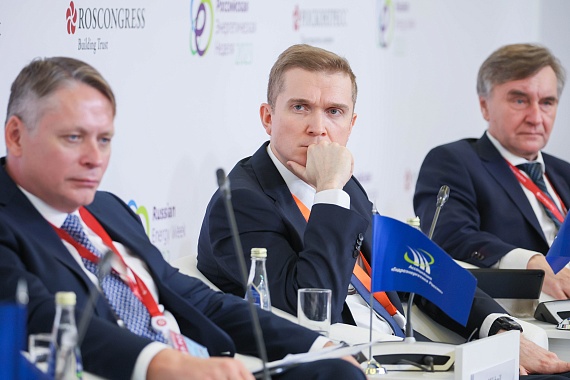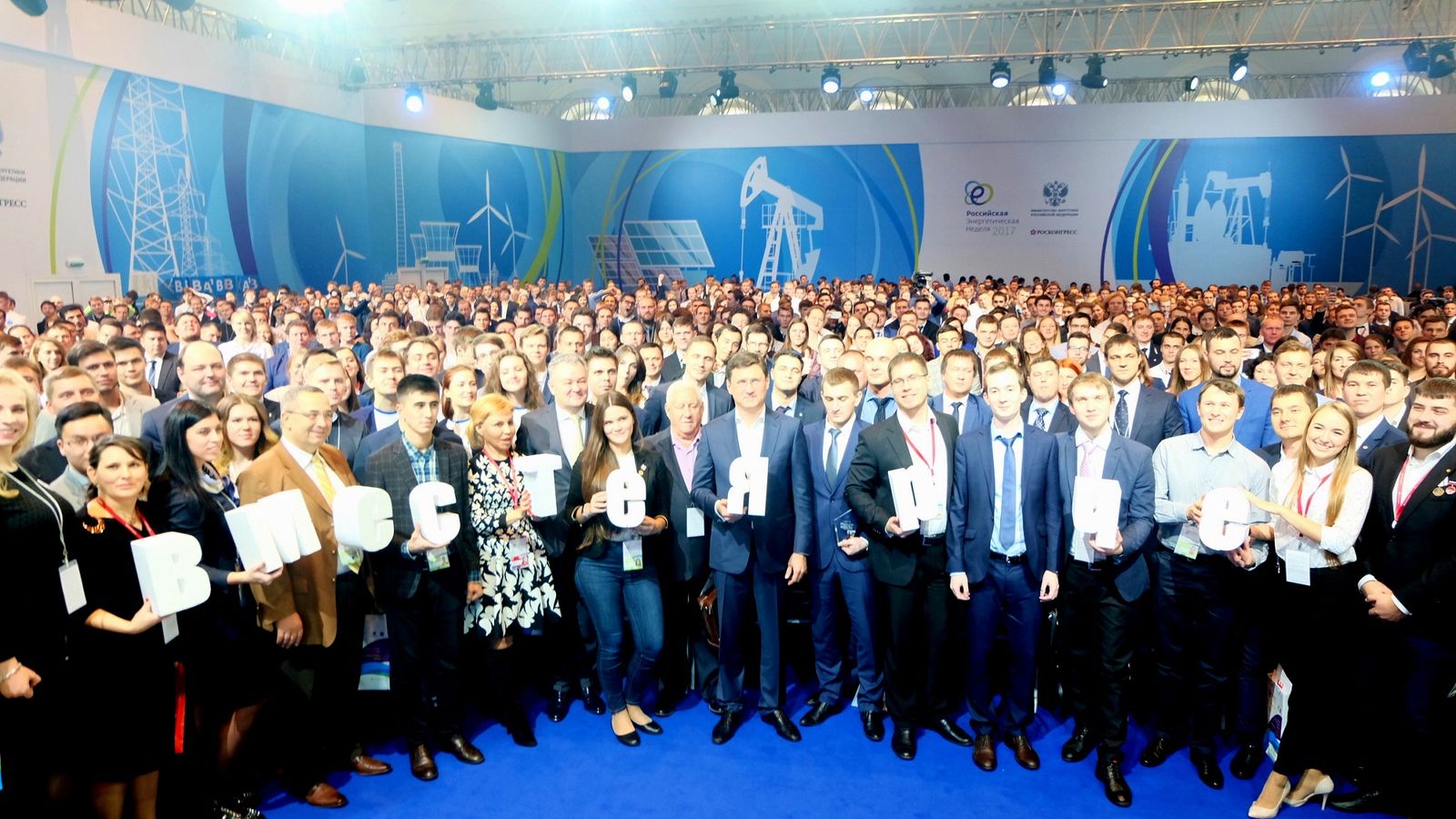Advancing Hydropower: From Plans to Implementation

Russia should realize its
hydropower potential, including the construction of new hydroelectric power
plants (HPPs), especially in the Far East, where such facilities can mitigate
the risk of floods. However, the construction of new large hydropower plants is
complicated by the long lead times (about ten years) for such projects, while
small HPPs require too much investment. Therefore, it is necessary to develop
government tools to support this area. That was the opinion of representatives
of federal executive authorities and energy companies at the end of the session
‘Advancing Hydropower: From Plans to Implementation’ held as part of the
Russian Energy Week (REW).
KEY CONCLUSIONS
Hydropower development is necessary for Russia,
especially in the Far East
“It seems to me that the most
important commodity of the new century will be water. Indeed, we have not
realized Russia’s hydro potential, but we are trying to catch up. <...>
The construction of HPPs in terms of spatial development and socio-economic
impact on the whole territory has a large coverage in such areas as
agriculture, transport, energy, and navigation,” Pavel Snikkars, Deputy
Minister of Energy of the Russian Federation.
“At the moment, 20% of our
energy balance is made up of hydro power plants. Of course, this share can be
increased,” Fedor Opadchy, Chairman of the Board, System Operator of the United
Power System.
“Primorye has a large
unrealized potential [of hydropower generation, – Ed.], and it must be
said that it is not very well researched. But from the point of view of both
large and small generation development, it is an excellent place. And most
importantly, it is an area where accelerated [development] is underway, where
additional electricity is needed,” Oleg Lushnikov, Executive Director,
Hydropower of Russia Association of Organizations and Workers of Hydropower.
Hydropower solves a host of problems at once, including flooding and
emission reduction
“You know that the climate is
changing, and in the Far East this is particularly noticeable. Over the last
five years, state of emergency on the federal level has been declared three
times – all of this was due to floods. <...> Therefore, we support RusHydro’s
plans to build two more power plants. They are very important, including in
order to protect the population of the region from floods, which unfortunately
have been occurring too often recently,” Vasily Orlov, Governor of Amur Region.
“The hydro potential is there.
In addition to the flood control effect, tourism, the use of these waterways
for transport, there is the topic of low-carbon agenda. <...> In EN+, we
have four very large hydropower plants in Siberia, we put them through a system
of measurements according to the methodology of international experts on
climate change, and all of them confirmed that carbon footprint is 5 grams per
kWh. It is practically carbon-free energy,” Mikhail Khardikov, Operations
Director, En+ Group.
PROBLEMS
Lack of government support measures for the hydropower sector
“We are talking about support.
The design of facilities is now included in the investment programme. But so
far there is no mechanism to support the construction of HPPs. <...> We
need instruments like CDA [capacity delivery agreement, – Ed.] for the
construction of hydropower facilities,” Roman Berdnikov, First Deputy General
Director, Member of the Management Board, RusHydro.
“When we say that we need
government solutions, state support programmes and return on investment, we
always run into some kind of misunderstanding. But no one is building on the
market now: neither thermal generation, nor renewable generation facilities are
being built. Everyone builds through CDA [capacity delivery agreement, – Ed.]
and special mechanisms,” Mikhail Khardikov, Operations Director, En+ Group.
“We do not have a single power
plant built by a private investor – all of them were built with government
support measures. <...> There are power plants that have become private,
but they were built by government decisions with budget funding, taking into
account all effects,” Pavel Snikkars, Deputy Minister of Energy of the Russian
Federation.
Risk of loss of machine-building potential due to low rates of HPP construction
“The volume of hydropower
inputs in Russia has been decreasing recently at catastrophic rates.
<...> If we do not build and commission HPPS and generate power in the
near future, we will lose our potential, which, unlike other types of equipment,
we have,” Vladimir Demyanov, Deputy Director – Head of Hydro Power Division,
Power Machines.
“Now we have abandoned the
USSR experience in terms of regulatory documents to a critical extent. And
there is no new expertise – there is none. We have not been engaged in new
construction [of large-capacity facilities, – Ed.] – these were Soviet
projects developed long ago,” Alexey Vinogradov, General Director, Nord Hydro –
Beliy Porog.
SOLUTIONS
Long-term strategic planning and simultaneous development of small and
large hydropower generation
“Markets are more short-term
and immediate. No market can give a price signal for 80 years ahead. This is
why government involvement is necessary,” Fedor Opadchy, Chairman of the Board,
System Operator of the United Power System.
“When we make a 5–7-year-long
development plan, when a capacity shortage occurs, we choose not the generation
facilities that are the most efficient, but those that we will have time to
make within a few years. Therefore, if we switch to long-term planning, we will
be able to make decisions on the implementation of efficient generation
sources, including HPPs, within the framework of long-term development in
places where capacity shortages arise,” Roman Berdnikov, First Deputy General
Director, Member of the Management Board, RusHydro.
“Still, small hydropower and
big hydropower are not alternatives to each other. They fully complement each
other,” Daler Juma, Minister of Energy and Water Resources of the Republic of
Tajikistan.
“For some time, the vector was
shifted towards small hydropower, and it is indeed developing, increasing its
capacity by about 1% every year. At the same time, I must say that large
hydropower is developing three times faster. In terms of total capacity, large
hydropower accounts for 94% of all hydropower, and according to the
International Energy Agency, this trend will continue. Small hydropower plants
will develop, but this will not change the situation significantly,” Oleg
Lushnikov, Executive Director, Hydropower of Russia Association of
Organizations and Workers of Hydropower.
For more information,
visit the Roscongress Foundation’s Information and Analytical System at roscongress.org/en.
The Russian Energy Week
International Forum is a key global platform for discussing current trends in
the development of the modern fuel and energy sector. This event is
traditionally held at the highest level, featuring the participation of leaders
from the largest companies in the energy industry. In 2022, more than 70
events, with the involvement of over 270 speakers, were held as part of REW.
The Forum attracted over 3,000 participants and media representatives from
Russia, as well as 83 foreign countries and territories. The Forum is organized
by the Roscongress Foundation and the Ministry of Energy of the Russian
Federation, with the support of the Moscow City Government.
Official website of REW: rusenergyweek.com. For news about the event and the industry, please
follow the official REW page on VK.





